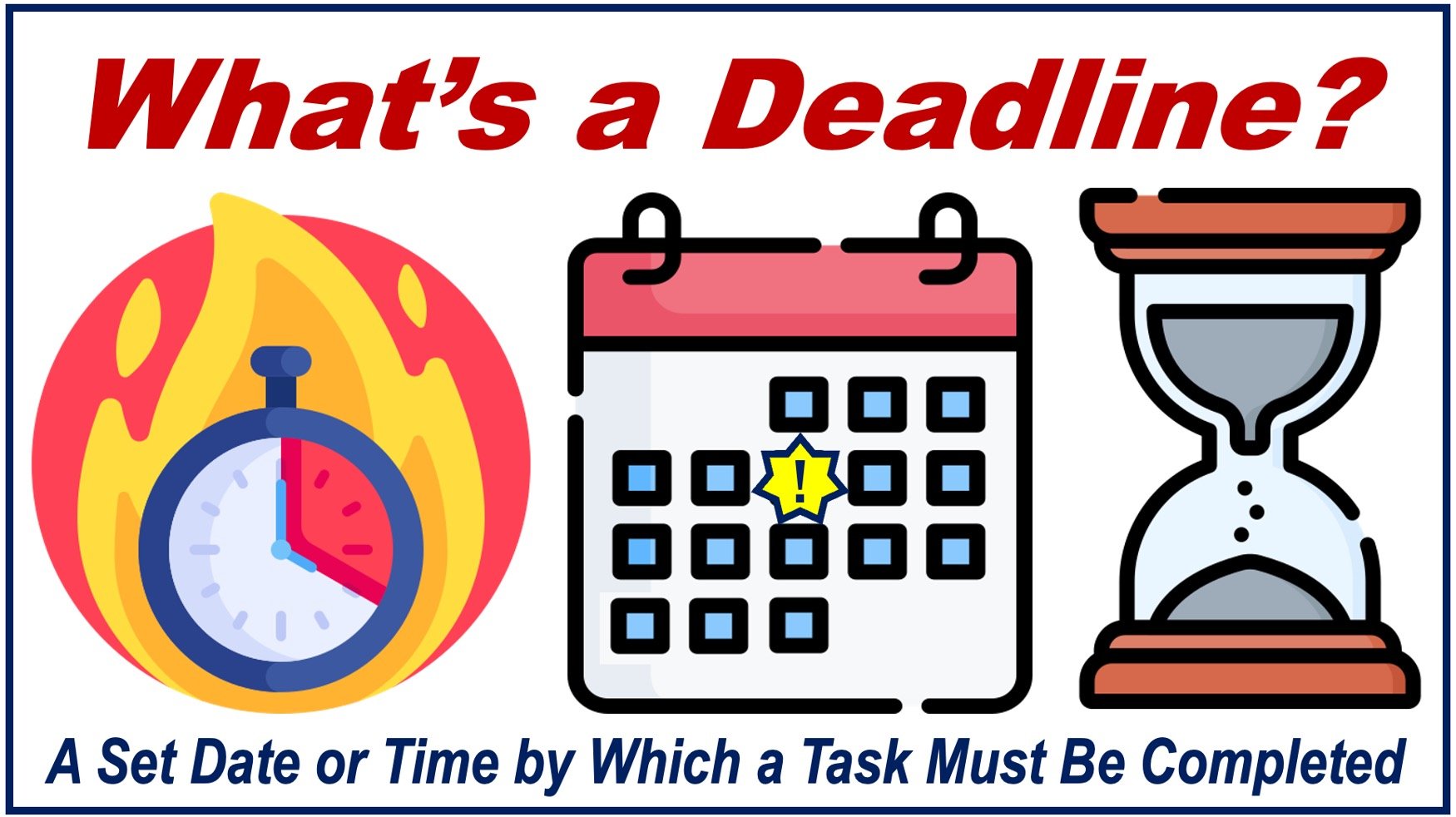A Deadline is a date or time by which a task or project must be completed. Deadlines are everywhere. From filing your taxes and presenting a proposal to a client, to turning in an assignment, most things in life have a point where they need to be done.
Collins Dictionary has the following definition of the word “deadline,” plus an example sentence containing the term:
“A deadline is a time or date before which a particular task must be finished or a particular thing must be done. Example Sentence: ‘We were not able to meet the deadline because of manufacturing delays.'”
Deadlines serve a few important purposes:
They turn ideas into concrete targets. An open-ended project becomes something with a clear finish line.
- Staying Organized
With deadlines in place, we can better plan our time and prioritize what needs to be done and when.
If we know that something must be completed by a specific time in the future, we tend to be more motivated to get it done. Time limits can add a healthy sense of urgency and focus.
Why Deadlines Matter
If we miss a deadline, there is usually a consequence – that is why they exist. Depending on the task, we might face:
- Late fees or penalties.
- Lost opportunities.
- Lowered performance scores or grades.
- Damaged professional reputation.
- Increased stress or workload due to having to catch up.
- Strained relationships with team members or partners relying on timely completion.
- Legal repercussions if the deadline is tied to regulatory or contractual obligations.
That’s why it’s important to take them seriously.

Tips to Help You Manage
Having a time limit can be stressful. However, with the right approach, you can take better control:
-
Clarity is key
Make sure you clearly understand what you have to do and why. Do you have to get a draft ready by a certain date, or the final, polished version?
-
Break it down
For big projects, create smaller completion dates for different stages of work. This makes things less intimidating.
-
Plan ahead
Do not procrastinate – don’t wait until the last minute. Schedule time to work on the task well before the deadline arrives.
-
Contingency plan
Things happen. Have a backup plan in case of illness or emergencies so that you can communicate with those who set your time limit.
-
Ask for help
If you think that you are not going to complete the task in time, talk to the person who set the target date. If you communicate early enough, you may be able to organize an extension or adjustment.
Not Just Work and School
While deadlines are common in the workplace, schools, and colleges, they apply to daily life too. Take organizing a party, for instance: the scheduled event date essentially acts as your final due date.
When we set ourselves personal goals, we usually have self-imposed time limits to keep ourselves on track.
When used wisely, deadlines can be tools for success.
